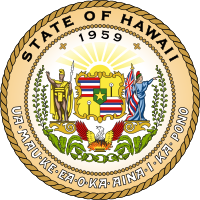This case arose from a declaratory relief action brought by a parent to determine whether a failure to provide an accommodation for a child regarding a grade level placement exam for Hawaiʻi Technology Academy was disability discrimination pursuant to Haw. Rev. Stat. § 368-1.5. The statute states “No otherwise qualified individual in the State shall, solely by reason of his or her disability, be excluded from the participation in, be denied the benefits of, or be subjected to discrimination by state agencies, or under any program or activity receiving state financial assistance.”
In 2014 the Hawaiʻi Civil Rights Commission ruled that that the Commission had jurisdiction over public schools receiving state financial assistance, because the statute did not expressly exclude schools.
On appeal, the Circuit Court of the First Circuit reversed the Commission decision, holding that the relevant statute, H.R.S. § 368-1.5 did not apply to schools.
The Circuit Court decision was appealed, and in Hawai`i Technology Academy and the Department of Education, State of Hawai`i v. L.E. and Hawai`i Civil Rights Commission, 141 Haw. 147, 407 P.3d 103 (2017), the Hawaiʻi Supreme Court upheld the Circuit Court’s ruling, holding that in enacting the HRS § 368-1.5 prohibition against disability discrimination in “programs and activities receiving state financial assistance,” the legislature intended to limit jurisdiction to state agencies and other entities that do not receive federal funding. Under the HTA decision, a state claim under HRS § 368-1.5, is only available when there is no federal relief available under Section 504 of the Rehabilitation Act.
The HTA decision drastically restricted and reduced the number of state and state-funded programs that are covered under § 368-1.5, as there are very few such programs or agencies that do not receive any federal funding. Under this decision, in cases against state agencies which receive any federal funding, a complainant can only seek recourse under federal law.

